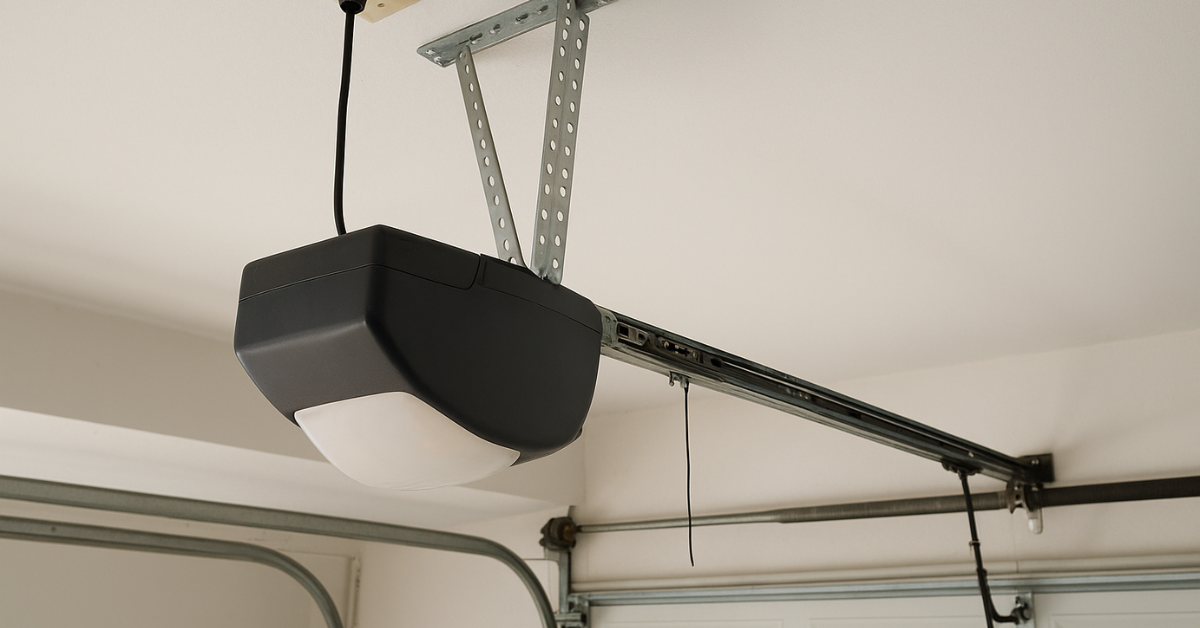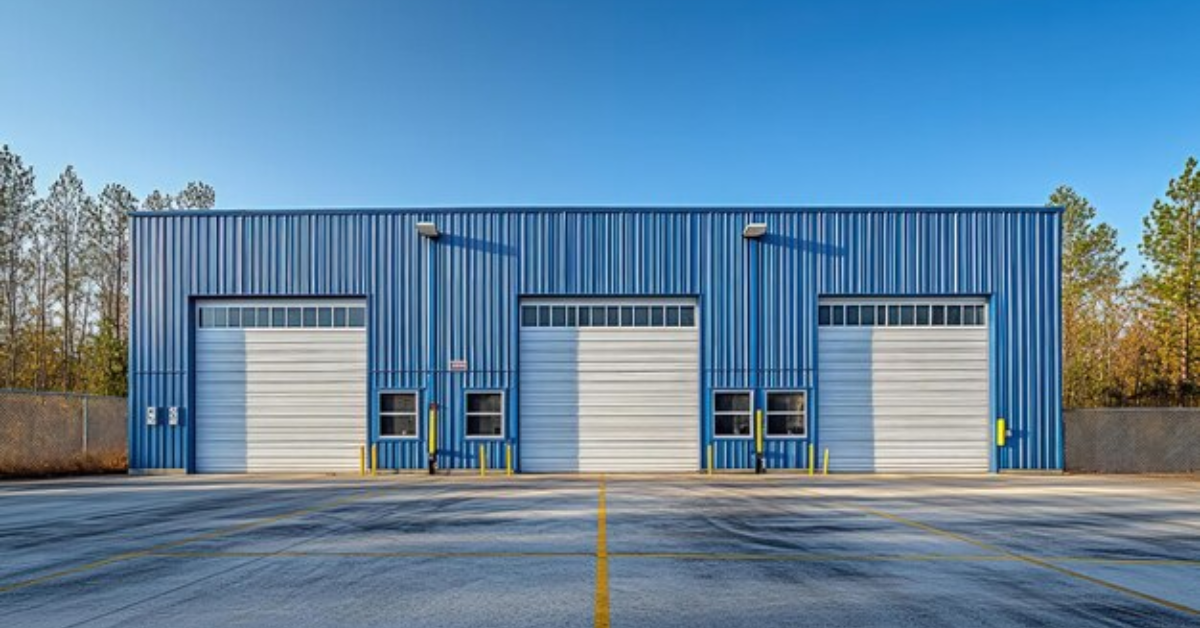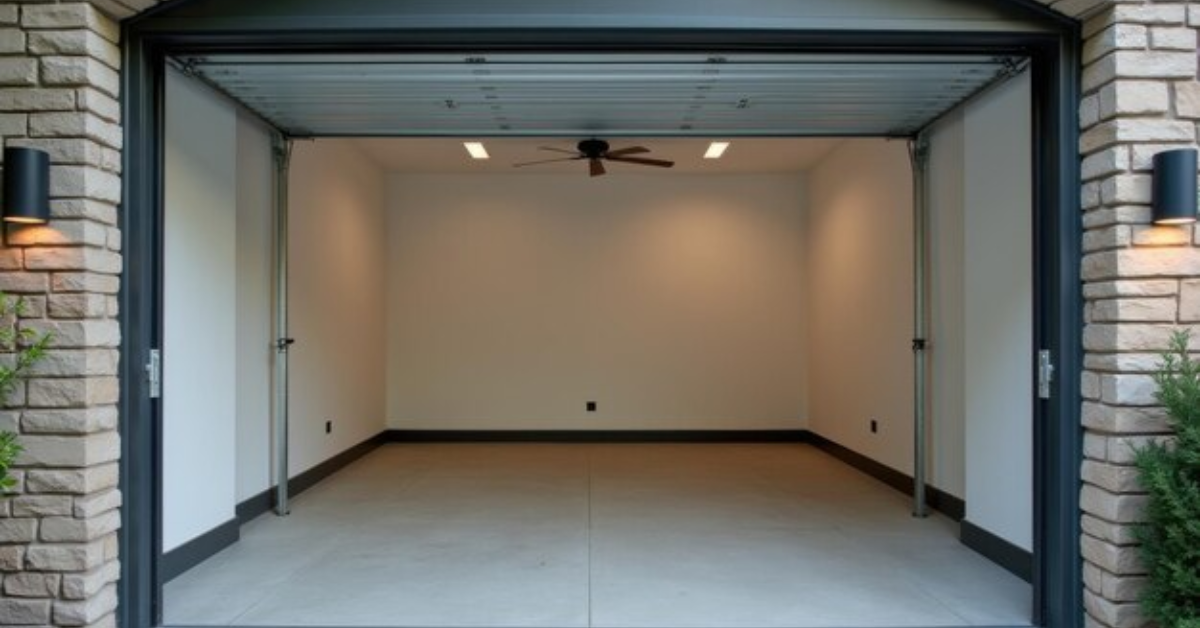What Are the Warning Signs of a Failing Garage Door Motor?
What Are the Warning Signs of a Failing Garage Door Motor?
Your garage door plays a major role in your home’s convenience and security, but its performance relies heavily on one crucial component—the motor. When the motor begins to fail, your garage door may stop working smoothly or even put your safety at risk. Understanding the warning signs of a failing garage door motor can help homeowners catch problems early, avoid costly repairs, and prevent sudden breakdowns. Since the motor works daily—often multiple times—it naturally experiences wear over time. Spotting issues early ensures your garage door continues to operate safely and efficiently.
In this guide, we’ll walk you through the most common signs that your garage door motor may be failing, what causes these problems, and when it’s time to replace the opener.
Why Recognizing Warning Signs Early Matters
A failing garage door motor rarely stops working without giving clues first. These early signals are important because they prevent you from getting stuck with a door that won’t open, unexpected repair costs, or safety hazards. By understanding the warning signs of a failing garage door motor, you can address issues before they turn into expensive emergencies.
Warning Sign #1 – Slow or Struggling Door Movement
One of the first signs homeowners notice is slow or inconsistent door movement.
What This Means: If your garage door takes longer than usual to open or close, the motor may be losing power. While cold weather or worn springs can also cause sluggish movement, a struggling motor often produces a noticeable decline in performance.
When to Take Action: If the slow movement becomes consistent—even after lubricating parts or adjusting settings—it’s time to have the motor inspected.
Warning Sign #2 – Unusual Noises During Operation
Garage door openers naturally make noise, but certain sounds suggest the motor is failing.
Sounds to Watch For:
- Grinding
- Buzzing
- Humming
- Clicking
- High-pitched squealing
These noises may indicate worn gears, electrical issues, or internal damage.
Why This Matters: Ignoring unfamiliar noises can lead to complete motor failure. If the sounds grow louder over time, professional attention is needed.
Warning Sign #3 – The Motor Runs but the Door Doesn’t Move
If you hear the opener motor running but the door remains still, this is a major red flag.
What’s Happening? The motor may be losing the ability to transfer power to the chain, belt, or screw drive system. This often happens when internal gears strip or wear down.
What to Do Next: This isn’t a fix you can safely do yourself. A technician should inspect the opener and determine whether replacement is required.
Warning Sign #4 – Intermittent or Random Stops
A healthy garage door opener should move the door smoothly from start to finish without stopping.
Why This Happens:
Random stops may be caused by:
- Overheating
- Faulty wiring
- Internal motor strain
- Sensor malfunctions
Take It Seriously: Repeated stops usually indicate a more serious motor problem rather than a simple sensor issue.
Warning Sign #5 – Burning Smell or Visible Smoke
A strong electrical or burning odor is one of the most urgent warning signs of a failing garage door motor.
What’s Going On? This smell can come from overheated circuitry, motor burnout, or shorted wiring. In severe cases, smoke may appear.
Immediate Steps: Stop operating the opener immediately and unplug it. Contact a professional—this is a high-risk hazard.
Warning Sign #6 – Frequent Reversing or Failure to Close Properly
If the door randomly reverses or won’t stay closed, it could mean the motor is no longer providing consistent force.
Other Possible Causes: Safety sensors, worn springs, or misalignment can also contribute—but if those components are fine, the opener motor is likely the issue.
Warning Sign #7 – Remote or Keypad Response Delays
If you press the button and the door hesitates or doesn’t respond, the motor may be struggling to receive commands.
Why It Happens: Weak internal circuits, outdated openers, or electrical problems can interfere with signal processing.
Should You Repair or Replace Your Garage Door Motor?
Some issues—like wiring fixes or gear replacements—may be repairable. However, replacement is often recommended if:
- The opener is more than 10–15 years old
- The motor frequently overheats
- Your system uses outdated, unsafe technology
- Repair costs approach the price of a new opener
Modern motors offer better safety features, stronger performance, and quieter operation, making replacement a smart long-term investment.
Conclusion
Knowing the warning signs of a failing garage door motor can help you protect your home’s security, convenience, and safety. From strange noises to burning smells to slow movement, each signal matters. By addressing issues early, you can avoid sudden breakdowns and ensure your garage door works reliably when you need it most. If you notice persistent problems, scheduling a professional inspection is the safest and most cost-effective solution.
FAQs
Q: What causes a garage door motor to fail?
A: Common causes include age, worn gears, overheating, poor lubrication, and electrical issues.
Q: Can I fix a failing motor myself?
A: You can troubleshoot basic issues, but internal motor repairs should always be handled by a professional.
Q: How long does a garage door motor last?
A: Most openers last 10–15 years with regular maintenance.
Q: Why is my garage door opener making a humming sound?
A: It may indicate the motor is powered but unable to move the door—typically a sign of internal failure.
Q: When should I replace my garage door motor?
A: If the motor shows multiple warning signs, frequently stops, or is more than a decade old, replacement is recommended.

You might also like
Fix N Go Blog



